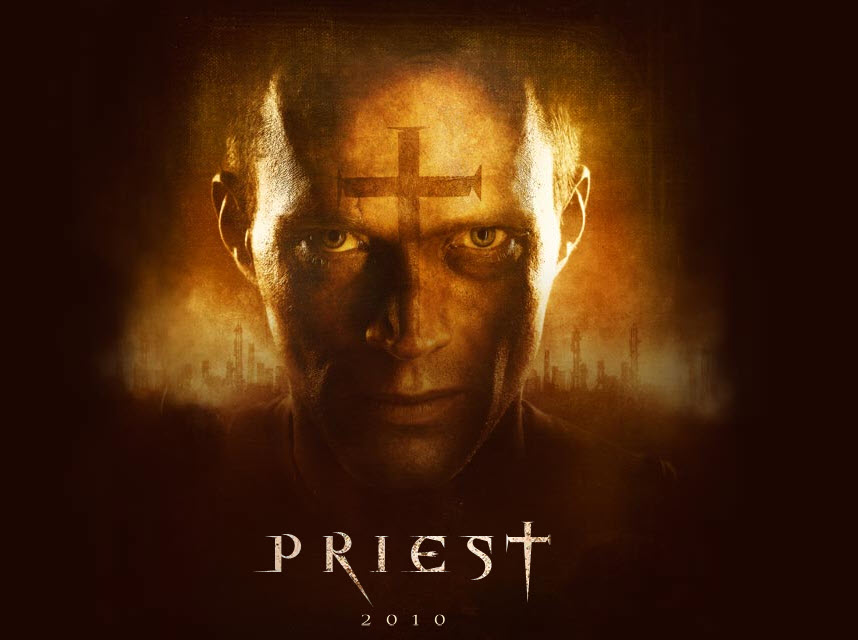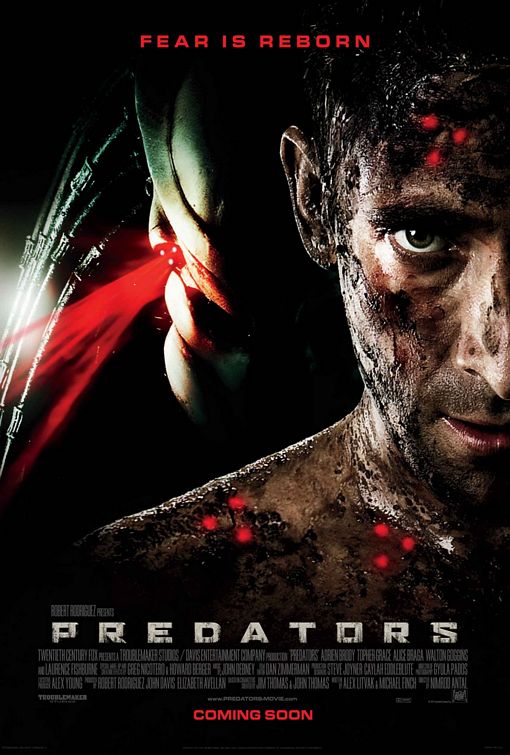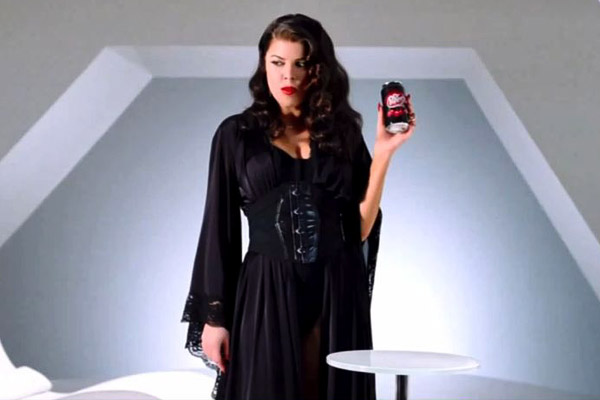EDITING: Have You Heard of It?
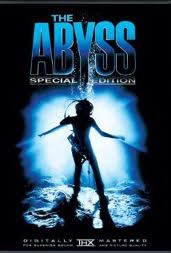 Has this ever happened to you: You wake up in a Mexican mausoleum, wearing a white linen suit, missing you wallet and one kidney — wait, not that. I’m thinking of something else entirely.
Has this ever happened to you: You wake up in a Mexican mausoleum, wearing a white linen suit, missing you wallet and one kidney — wait, not that. I’m thinking of something else entirely.
Has this ever happened to you: You’re reading a book or watching a movie, and really enjoying the story as it sets up, and then suddenly it all takes a left turn in a strange direction and becomes a completely different movie? Usually this starts off as a more or less straight genre story of some sort and then zig-zags into SFnal territory, and it is almost always a disaster, because invariably the non-SFnal aspects of the story were much better than the SF stuff.
The first time I ever experienced this kind of dizzying letdown was with The Abyss, James Cameron’s 1989 film starring Ed Harris, Michale Biehn, and Mary Elizabeth Mastrantonio. The film spins out a nicely tense set-up: A US submarine sinks to an extreme depth, marines led by an unstable CO are sent down to a deep water oil platform to team up with the civilian divers who live on the platform. The extreme pressure can have some side effects on certain folks, and the marine commander appears to be one of them; he grows increasingly paranoid, acquires a nuclear warhead from the sunken submarine, and things get interesting.
And then aliens show up, and the movie goes straight to hell.
Now, to be fair, there are other problems with The Abyss (if you’ve never seen it, watch it and look for the scene where Ed Harris brings his wife back to life apparently through sheer force of will), and the aliens were almost certainly the point of the movie from the get-go. My point here is that as a storyteller, Cameron should have recognized that his story without the aliens was actually very, very good, and very interesting, and he should have deleted the aliens and kept going towards the paranoid, tense climax the film was begging for. He should have edited that bastard. Not editing in the film sense, but editing in the sense of cutting your story down to what works.
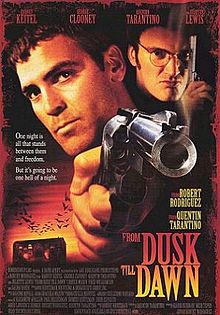 Another example of this is the early Tarantino/Rodriguez collaboration From Dusk Til Dawn (Rodruiguez has a big problem with editing in this sense). Certainly it was a gonzo idea to begin with, taking two stories and melding them together. The problem is that Taratino’s story about the Gecko brothers taking a family hostage in order to sneak into Mexico and evade justice is compelling, funny, and interesting.
Another example of this is the early Tarantino/Rodriguez collaboration From Dusk Til Dawn (Rodruiguez has a big problem with editing in this sense). Certainly it was a gonzo idea to begin with, taking two stories and melding them together. The problem is that Taratino’s story about the Gecko brothers taking a family hostage in order to sneak into Mexico and evade justice is compelling, funny, and interesting.
And the vampires show up and the movie goes straight to hell.
Again, there’s some fun in that vampire sequence. But it isn’t a great movie, and the characters established in the first half of the film cease to exist and become just actors fighting vampires. The first half of the story is pretty damn good, and I wanted to see what happened to the Geckos and their hostages. The vampire side is just bullshit.
And that’s usually the problem: Melded genres like this are sometimes (certainly not always) just gonzo exercises — someone says hey wouldn’t it be something if aliens showed up here and whether due to inebriation or writer-block desperation, someone else says yeah! and a terrible movie is born. Once you introduce the gonzo element (aliens! vampires!) [gonzo only in context, because the story up to that point was not in any way fantastic] the story actually stops dead, the characters cease to exist, and everything just becomes a fun mash-up to play with. This can be entertaining, but it is often a bad story.
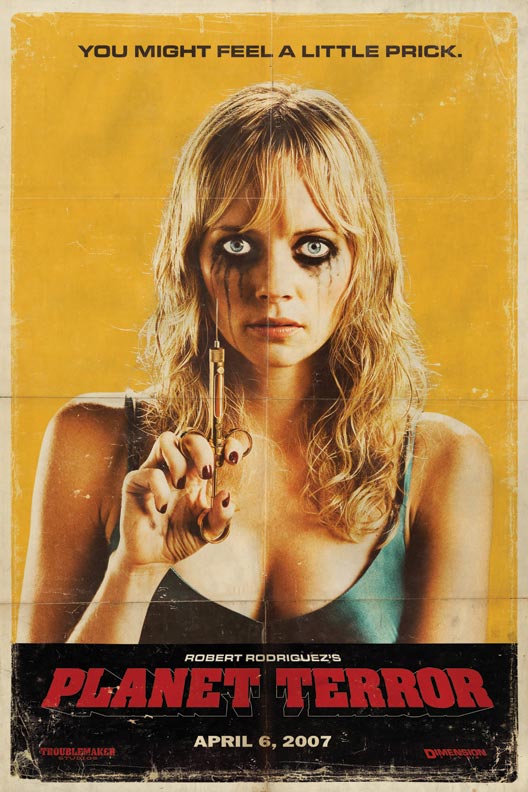 The most recent example I can recall right now is Rodriguez’s half of the Grindhouse experiment, Planet Terror. Again, I know the whole point of the film is to get to the zombie storyline. I get that. but the set-up involving Marly Shelton and Josh Brolin as unhappy married doctors is really fun and interesting. From their bizarre son and his “I will eat your brain and steal your knowledge” line to Marly’s running mascara and Brolin’s air of menace, these are fun characters. I would have loved to see a story that actually followed Brolin’s growing insanity as he realizes his wife is planning to leave him, leading him to incpacitate her with drugs and lock her in a supply closet. I would have loved to follow her as she manages to escape despite being partially paralyzed. There’s good stuff in there. You can even keep the part where she’s menaced by <something> and leaves her son in the car with a loaded gun, and the marvelous reaction shot when she takes about two steps away before the gun goes off.
The most recent example I can recall right now is Rodriguez’s half of the Grindhouse experiment, Planet Terror. Again, I know the whole point of the film is to get to the zombie storyline. I get that. but the set-up involving Marly Shelton and Josh Brolin as unhappy married doctors is really fun and interesting. From their bizarre son and his “I will eat your brain and steal your knowledge” line to Marly’s running mascara and Brolin’s air of menace, these are fun characters. I would have loved to see a story that actually followed Brolin’s growing insanity as he realizes his wife is planning to leave him, leading him to incpacitate her with drugs and lock her in a supply closet. I would have loved to follow her as she manages to escape despite being partially paralyzed. There’s good stuff in there. You can even keep the part where she’s menaced by <something> and leaves her son in the car with a loaded gun, and the marvelous reaction shot when she takes about two steps away before the gun goes off.
But then zombies show up and the movie goes straight to hell.
Now, this doesn’t mean that when writing a H/SF/F story you should never create interesting characters with interesting backstories, or if you do accidentally create such interesting things you should immediately surgically remove the H/SF/F aspects. It just means that sometimes your H/SF/F aspects do not mix well with a more reality-based story you’ve created as set-up, and sometimes, when that happens, your set up is better than anything else you’ve got and you should trim back and follow those lines instead. Recognizing which situation you’re in can be difficult, but it can have tremendous payoffs.
In my own work, when I have a straight set up that suddenly veers into the fantastic, it’s usually because I’ve run out of ideas, and dead-dropping some magic or monsters into the plot gives it a charge of energy. This often works because on the other end of things, when I get the idea for a fantastic story I often race to get the premise figured out but neglect the characters or plot. So on the one hand I have characters and half a plot that peters out. on the other I have a fantastic idea but no characters or plot. Mush them together, and theoretically you should have something resembling a finished novel.
Naturally, this never works.
Still, if I let every failed project stop me from writing the next one, I wouldn’t be flogging this blog, would I? Failed projects are The Wheaties of a witer’s life, the breakfast of champions. So, I sympathize with folks who go whole hog into this and produce films or other stories that veer off in crazy directions after setting up something interesting but, perhaps, unresolvable in the first two acts. I feel their pain. And if someone wants to pay me a few million bucks to put my literary horrors up on the screen, I’d be more than happy to do so.

